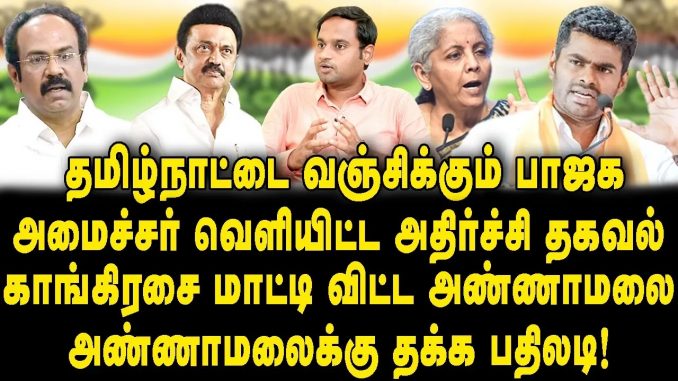
In a recent development during the ongoing assembly session, Finance Minister Thangam has made a serious allegation against the Union Government, particularly targeting the BJP-led administration in the southern states. The accusation revolves around the unequal distribution of funds to Tamil Nadu, a significant contributor to the country’s tax revenue.
Minister Thangam highlighted the staggering figures: Tamil Nadu’s tax revenue contribution stands at a substantial 5.16 Lakh Crores. However, the Union Government has allocated only 2.18 Lakh Crores to Tamil Nadu when distributing funds to the states. This stark contrast raises questions about equitable fund allocation among states.
During his address in the Assembly, Minister Thangam pointed out that Hindi-speaking states like Uttar Pradesh receive more significant funds from the Union Government compared to Tamil Nadu. This revelation has ignited a debate on the fairness of the fund distribution system.
In response to these allegations, Tamil Nadu BJP leader Annamalai has defended the Union Government’s stance. He stated that Minister Thangam’s claims overlook various aid funds provided to Tamil Nadu and the funds allocated for infrastructure development within the state. Annamalai also made it clear that the previous Congress government had allocated fewer funds to the states.
Congressman Inian, however, rebuts Annamalai’s assertions, arguing that the statistics presented may not accurately represent the complete picture. Inian emphasizes the urgent need to establish a transparent and structured framework for fund sharing between the Union Government and the individual states.
#FinanceMinister #UnionGovernment #FundDistribution #TamilNadu #TaxRevenue #BJPAdministration #ResourceAllocation #AssemblySession #EquityInFunding #StateDevelopment #CongressGovernment #GovernmentAid #FinancialEquality #FundsAllocation #TransparencyInFunding #RevenueContribution #SouthernStates #PoliticalDebate #FinancialStructure #UnionAndStates #ResourceEquity
Disclaimer: The views expressed in this article belong to the interviewee and do not necessarily represent the views of the news publication.

Leave a Reply